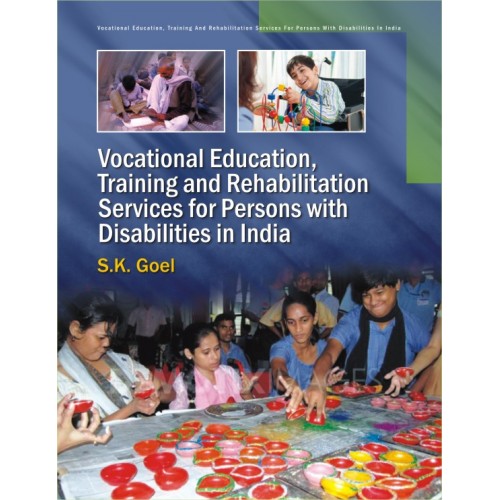It needs to be emphasized that vocational training facilities must be distributed very thinly as it is not possible for the PWDs to go to the training centers at far off distances due to their social, emotional and disability problems. The selection of institutes for integrated vocational training should, therefore, be made in such a way that it covers the maximum geographical area. Vocational education is a very inclusive term whereby an individual learns to carry on successfully any useful occupation. In other words, it is a controlled organized methodology to prepare a person for socially useful employment. All education may be considered vocational in the sense that it should prepare for satisfactory living.
The need for such a comprehensive document was always felt in our country but was never fulfilled. With this book, the author has fulfilled this long-felt need by bringing out different aspects and dimensions of the problems of PWDs, in the Indian context.
This document provides an overview of the historic developments, approaches, innovations and the services on vocational education and training for PWDs in the Indian context. It not only provides rich knowledge and material for trainers, but it also provides a forum for future discussion in various training programmes within the country. This treatise should be read by everyone: by the PWDs, by the administrators and policy-makers, by the lawyers and judges, by parents and teachers, by the scientists and technologists, and by everyone who has the spark of humanity in him or her. Thus, the document prepared is the need of the hour in order to make the concept of VETR successful. The overall aim of vocational training is to enhance the vocational skills of PWDs leading to economic development.
| Common |
| Author |
S. K. Goel |
| Binding |
Hardcover |
| Edition |
1 |
| ISBN |
978-81-7910-433-0 |
| Language |
English |
| Number Of Pages |
xvi+283 |
| Publication Year |
2023 |
| Publisher |
Aavishkar Publishers, Distributors, Jaipur |





















































